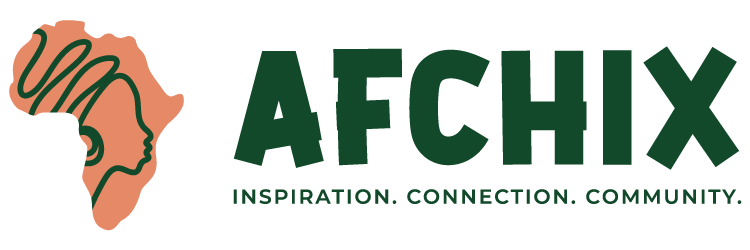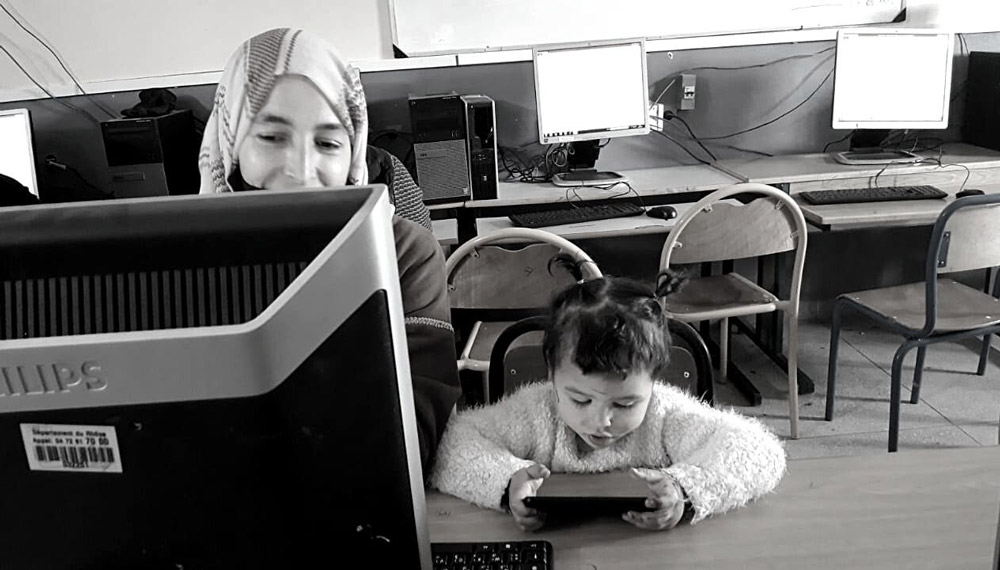Aziza was only going to serve the tea. But when she saw what other women were learning during AFCHIX’s digital literacy training sessions, she knew she had to join in. So, instead of waiting to provide the refreshments during training breaks, she sat down behind a computer herself. “The workshops enabled me to enter the world of computers in order to understand how they work and to know the different software and applications such as text editing, spreadsheets, and web browsers,” she now eagerly says about her new skills.

Aziza lives in the rural Moroccan community of Ait Izdeg, where AFCHIX is implementing one of four community network projects through the WomenConnect Challenge, funded by the United States Agency for International Development (USAID). A wife and mother of three daughters, she aspires to start her own business despite only a primary school education. “The internet will help me develop my way of working and identify new customers,” she says.
Like many women in rural – and even urban – communities in Africa, Aziza was simply not aware of the benefits that learning to use the internet could bring her as a mother or an entrepreneur. A lack of awareness of the potential benefit of being online is one of the key factors contributing to the digital gender divide. Often, women do not feel the need to learn to use the internet because they do not believe that it can add any value to their lives. They simply do not believe that the web can offer any information of interest to them – a perception that is only reinforced by limited relevant content in local languages.
However, a lack of awareness is arguably the best-case scenario for convincing women – and others in their communities – that they can benefit from the internet. In many communities, social norms dictate that technology and internet use is not just irrelevant to women but in fact inappropriate or immoral. As a result, changing social norms and cultural perceptions is one of the proven strategies to close the digital divide identified by USAID, citing the importance of working on perceptions with those frequently in power, such as community and religious leaders.
A USAID Desk Review also argues that internet access and use follow broader social patterns, echoing the deep social and cultural exclusion of women. One aspect of life where this is most clearly visible is the difference in access to education – and subsequent ability to earn income – between men and women. Gendered inequalities mean that women, like Aziza, are more likely than men to be illiterate or have only limited levels of education. Although a recent report by the Moroccan High Commission for Planning (HCP) stated that 90.5% of Moroccan girls aged 15 to 17 attended schools in urban areas, this figure drops to 39.2% for girls in rural areas.
These inequalities are then replicated in the digital space as a lack of education makes it more likely that women will also lack the digital skills or confidence needed to use technology and the internet. For example, the Web Foundation found that in both Africa and Asia, women who have some secondary education are six times more likely to be online than women with only primary education or less. The interplay between social norms, access to education and underlying gender inequality means that efforts to close the digital gender divide cannot only focus on adult women but must also include girls.
The safe environment created by the AFCHIX training sessions meant Aziza felt comfortable enough to bring her young daughter along, introducing her to computers as well. According to UNICEF, children living in today’s world need to be digitally literate to fully participate in digital life and to be safe online. Digital literacy training can help to teach parents how to allow and support their daughters to do this and in Aziza’s case, provide her daughters with a role model proving that women are more than capable of learning to use technology and empowering themselves in other ways. “My ambition is to raise my daughters well. “I want to develop my cooking, confectionery, and marketing capabilities and start a pastry catering business.”


